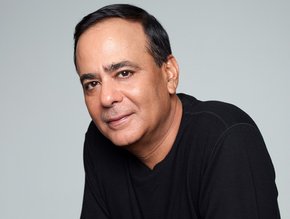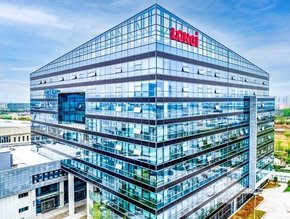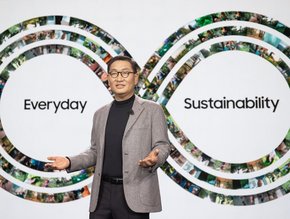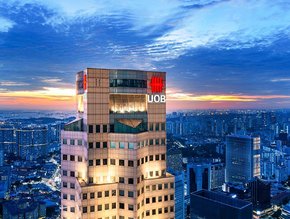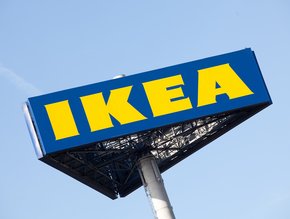Why B Corp is Asia’s next big business opportunity
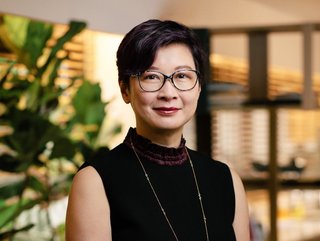
In tough economic times, it is easy to ignore ‘nice-to-haves’ in business. As companies look to cut back on everything from hybrid work to perks, you could be forgiven for thinking that ESG concerns would be one of the first casualties of hard times. Not so across large swathes of Asia, where the appetite for being B Corp – a business driven by doing good rather than prioritising profits – is growing.
“The growth of the B Corp community in Asia is on the rise, driven by a collective vision of an inclusive, equitable, and regenerative economy. The movement’s recent acceleration is evident, with over 245 B Corps in the region,” Eleanor Allen, Lead Executive of B Lab Global, tells Business Chief.
Founded in 2006, non-profit network B Lab believes that all businesses can use a stakeholder-driven model to be better, to be B Corporations. B Lab oversees the certification of companies that meet high social and environmental standards. The overall aim is to create a global economy that instead of lining the pockets of the few instead benefits everyone.
It is a lofty ambition, but more than 7,200 companies have been certified in 93 countries, and Asia – with its growing economic power – could be the next big opportunity. Especially when you consider there are currently just 245 B Corps in Asia.
“B Lab is evolving its standards and digital platform, collaborating with the Centre for Impact Investing and Practices (CIIP) to align with regional markets and drive the adoption of our standards across Asia,” adds Allen.
The B Corp movement saw its fastest growth in 2022, fuelled in part by increased ESG regulation and pressures from stakeholders and investors. With trillions of dollars being diverted to funds that prioritise ESG investments, and more being pledged, being good is also good for business.
According to Forbes, 58% of companies in APAC say ESG is critical to their long-term success, but only 29% have developed KPIs for ESG performance.This is where B Lab can help, with tools to help measure and manage company impact.
Adoption in Asia is growing, with a few notable hotspots showing rapid recent acceleration.
Take Singapore, which had just two B Corps in 2015, 24 in 2022, and 33 at last count. In Hong Kong & Macau, there are now 25 – up from just one single B Corp in 2016.
“B Lab is committed to supporting and fuelling ongoing growth in Asia,” says Allen. “We believe this is just the beginning.”
There is also a perception that being B Corp is only possible for small businesses with a low footprint. This is a misconception. While many B Corps are indeed small and medium-sized ventures, large organisations can also make the grade.
In Asia, four B Corps are publicly listed. These include O-Bank from Taiwan, certified in 2017 and the first digital native bank in Taiwan. Then there is SIGMAXYZ Holdings from Japan, a digital transformation consultancy certified in 2022. This year, real estate developer Olive Tree Estates from Singapore joined the list, as well as Malaysia’s personal care products retailer InNature Berhad.
The franchisee for The Body Shop (which itself became B Corp in 2019) in Malaysia, Vietnam and Cambodia, InNature Berhad’s MD Datin Mina Cheah said: “Our belief that business can be a force for good is embodied in every aspect of our business and operations.”
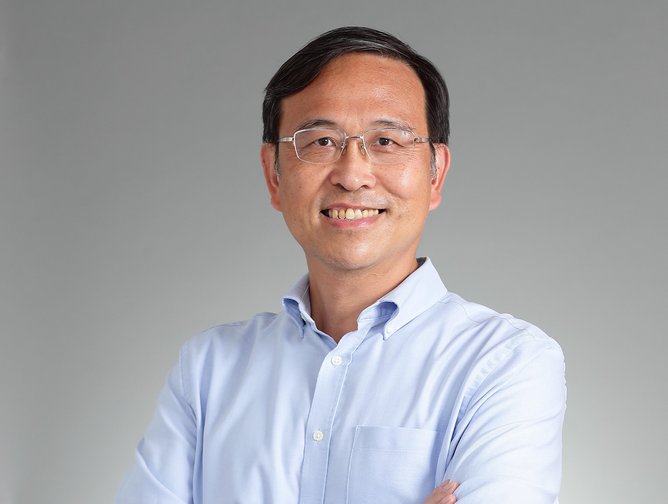
The B Corp challenge in Asia
You only have to look at the numbers to realise that while Asia holds incredible potential, it is lagging when it comes to B Corp awareness and uptake.
According to the International Monetary Fund, Asia and the Pacific will deliver 67% of global economic growth in 2023, as many economies struggle with inflation and supply issues. Three of the world’s top five countries ranked by GDP are also in Asia (China, Japan, and India).
With such monetary muscle, imagine how the world of B Corp would look with Asian companies accounting more than for the lowly 3% they currently claim.
That is one reason why B Lab Global teamed up with Singapore’s Centre for Impact Investing and Practices (CIIP) to establish the B Lab & CIIP Centre of Excellence for Asia.
CIIP was established and supported by global investment company Temasek Trust, and has strategic partnerships with ABC Impact, a private equity fund dedicated to impact investing in Asia. This is important to bring investor perspectives and sensibilities to the table.
Dawn Chan is the CEO at CIIP and she believes B Corp resonates with Asian culture and society.
“Many businesses in Asia have a history of active involvement in their community,” says Chan. “Culturally, many Asian investors and companies are motivated to practice a version of impact, even though they may not be conversant with the vocabulary of impact practice.
Chan believes that Asia offers a unique opportunity to deliver impact at scale – from empowering hundreds of millions of small to medium-sized enterprises, and smallholder farmers in the region, to developing a roadmap for a just climate transition.
“These positive dynamics, together with the region’s underlying cultural values, create conditions highly conducive for driving impact in Asia,” she adds. “We are actively engaging B Lab Global to offer more customised products and services for the Asian context, and to cater to Asian languages.”
There has been a positive reception to the new Singapore centre, and Chan hopes it will kick-start a broader B Corp movement in the region, by spreading the word and sharing success stories.
Stories like Education for Good – Hong Kong’s first B Corp. Founded in 2012, EFG is the only social enterprise dedicated to social entrepreneurship education and incubation in Hong Kong.
EFG’s principal consultant Gilbert Lee says survival is the main challenge for small businesses operating in an environment like Hong Kong.
“As a B Corp, we need to pay extra effort to fulfil the B Corp recertification and obligations,” says Lee. “The benefits are seeing EFG’s mission and corporate values become more solid with the entire team and with the board of directors, not to mention clear positioning with clients. Even though they may be familiar with B Corp, they recognise and appreciate our corporate values once they are explained.”
Lee is also co-chair of B Lab Hong Kong & Macau – a thriving chapter in the region tasked with promoting awareness, assisting companies with their certification journeys, and building that B Corp community by nurturing advocates.
Lee admits B Corp was slow to get off the ground in Hong Kong, partly due to the complexity of the process and the time investment required.
There is also the need to create a bespoke solution for companies in Asia that takes into consideration regional priorities, language, and culture. Despite these hurdles, B Corp is still gaining traction.
“It took four-and-a-half years to have the first 10 B Corps in Hong Kong and just two years for the next 10,” says Lee. “We now have 25 Certified B Corps in Hong Kong and we aspire to have 100 by the end of 2026.
“Hong Kong has long been considered a pioneer and role-model in capitalism, especially in financial markets. However, capitalism needs a major revamp to tackle the pressing global challenges. We believe the B Corp movement is a relevant framework for systemic change and helps make capitalism more equitable, more inclusive and more regenerative for us and our future generations.”
B Lab Global’s Allen understands the need to simplify the processes, addressing Lee’s point to evolve and adapt the certification process for an Asian audience.
“We are currently evolving our standards to meet the challenges of today and tomorrow,” says Field. “In catalysing a broader movement of using business as a force for good, CIIP will collaborate with the B Lab Global Standards Management team to ensure that the standards are relevant to Asian markets.
“Additionally, we are improving our digital platform and certification processes so it will be easier for companies to engage with the new standards.
“The economy across Asia is a significant contributor to the global economy – it is shaping the next phase of globalisation. At B Lab, we want to use this momentum to further catalyse the B Corp movement of business as a force for good.”

